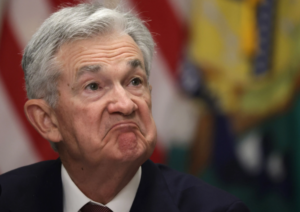#inflation #eurozone #interestrates #monetarypolicy #ECB #economicgrowth #pricegrowth #ratecuts
The recent data revealing above-forecast price growth within the single currency bloc has injected a new level of uncertainty into the financial markets, especially concerning the future trajectory of interest rate cuts. Historically, the European Central Bank (ECB) has navigated through economic ebbs and flows with the primary tool of adjusting interest rates to either stimulate economic growth or to keep inflation in check. The core mandate of the ECB is to ensure price stability, and the latest surge in inflation rates across the euro zone poses a significant challenge to this objective.
Inflation is essentially the rate at which the general level of prices for goods and services is rising, subsequently eroding purchasing power. An above-forecast inflation rate suggests that prices are increasing at a faster pace than economists and the ECB had anticipated. This scenario is particularly problematic for both consumers and businesses as it leads to decreased purchasing power and increased costs of borrowing. For the ECB, the immediate response to rising inflation would typically be to consider tightening monetary policy, which includes options such as raising interest rates. Higher interest rates tend to reduce spending and borrowing by making both more expensive, thereby, in theory, cooling inflation.
However, the expectation of rate cuts is usually predicated on a different economic context, one where inflation is under control and the focus shifts towards stimulating growth or addressing a downturn. The recent data suggests a conundundrum; the economy is facing upwards price pressures even as other indicators may suggest that cooling measures are needed. This puts the ECB in a difficult position, as it must balance the need to control inflation without hampering economic growth. Rate cuts, which were possibly on the horizon, might now be reconsidered, or delayed, as policymakers digest the implications of the latest inflation data.
The broader impact on the euro zone economy cannot be understated. Businesses planning for the future and consumers contemplating major purchases will all be affected by the ECB’s decision-making in this tightrope situation. The uncertainty about interest rate directions makes it challenging for economic actors to make informed decisions. Moreover, in a global context where several economies are dealing with similar inflationary pressures, the euro zone’s approach to tackling inflation and supporting economic growth will be closely watched by investors and policymakers worldwide.







Comments are closed.